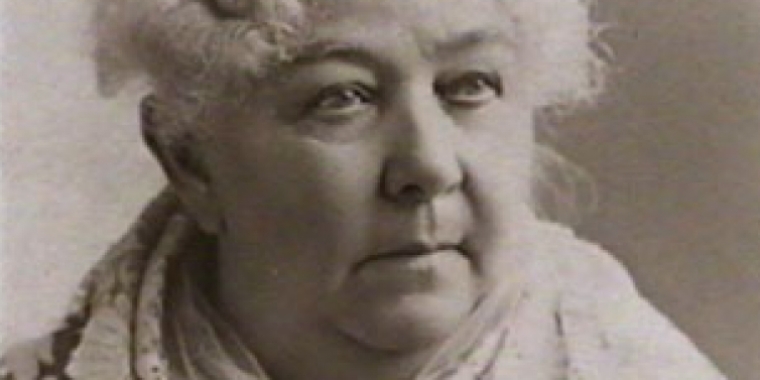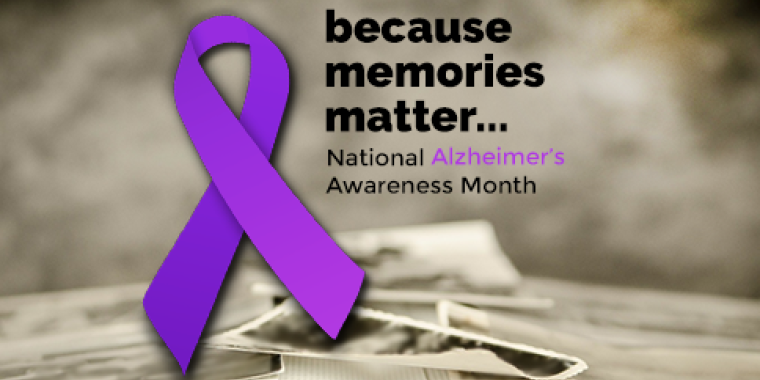
SEN. FARLEY REPORTS NEW CONSUMER PROTECTIONS, IMPROVED RESOURCES FOR THE BATTLE AGAINST HEROIN AND OPIOID ADDICTION, AND INCREASED ACCESS TO BREAST CANCER SCREENING AND ORGAN DONATION REGISTRATION ARE AMONG THE NEW LAWS THAT TAKE EFFECT JANUARY 2017
Senator Hugh T. Farley
December 23, 2016

State Senator Hugh T. Farley (R, C, I – Schenectady) announced measures that will continue to help New Yorkers battling heroin and opioid addiction, ensure access to benefits that help veterans and infants, protect consumers, and increase government transparency are among the new laws that take effect January 2017. Other changes being enacted in the new year include several road safety measures, new and extended tax cuts, and a number of consumer assistance laws that will assist New Yorkers when they are at the grocery store, buying and insuring property, or dealing with a car accident.
Protecting Public Health
Tackling Heroin and Opioid Addiction: Most of the provisions of the historic legislation passed to address the state’s ongoing heroin and opioid abuse crisis took effect when signed into law this June. However, several important provisions of the laws will become effective with health insurance policies and contracts issued, renewed, modified, altered or amended on or after Jan. 1, 2017, including:
· Ending Prior Insurance Authorization for Immediate Access to Inpatient Treatment Services. S8139, Chapter 71;
· Using Consistent Criteria to Determine the Medical Necessity of Treatments. S8137, Chapter 69;
· Authorizing Emergency Substance Use Disorder Medication Coverage by requiring insurance coverage, without prior authorization, for an emergency five-day supply of medications for treating a substance use disorder when emergency conditions exist. S8137, Chapter 69; and
· Expanding Access to Naloxone/Opioid Reversal Medication Coverage by requiring insurance coverage for the overdose reversal medication, whether it is prescribed to a person who is addicted to opioids or their family member covered under the same insurance plan. S8137, Chapter 69.
Improving Infant Coverage Under Child Health Plus: A new law updates the state’s Public Health Law to ensure that newborns are covered retroactively under the Child Health Plus (CHP) program. Newborns were not eligible under the previous requirements of CHP for periods lasting up to 30 days after enrollment. Starting in January, newborns will be covered going back to the first day of their birth month. S6241A, Chapter 27.
Encouraging New Yorkers to Become Organ Donors: Starting Jan. 1, New Yorkers will be offered an additional opportunity to document their decision to enroll as an organ and tissue donor. All applicants for health insurance offered through the state health benefit exchange will be provided space during the application process to register for the Donate Life Registry for organ, eye, and tissue donations. S6952A, Chapter 40.
Promoting Breast Cancer Screening: To further encourage and ensure access to regular screening and early detection, a new law allows New York City public employees to take up to four hours of excused leave per year for breast cancer screening. This will give them the same opportunity to get screened as public employees in the rest of the state. S8093, Chapter 74.
Support for Veterans
Hire-A-Vet Tax Credit: The 2016-17 budget extended the hire-a-vet tax credit from Jan. 1, 2017, to Jan. 1, 2019. The period of eligible employment for qualified veterans is also extended from Jan. 1, 2016, to Jan. 1, 2018. The credit is provided to any business that hires a veteran returning home from military service, on a full-time basis for at least one year. The credit is equal to 10 percent of wages paid, with a maximum of $5,000 per veteran - increasing to 15 percent of wages if the veteran is also disabled, with a maximum of $15,000 per disabled veteran.
Ensuring Veterans Receive the Benefits to Which They’re Entitled: Legislation was enacted to require local Social Services districts and not-for-profit agencies that receive state funding to inquire as to whether a person who is applying for social services, or any member of his or her family, has served in the United States Military. If so, they would be provided with contract information for the New York State Division of Veterans’ Affairs in order to ensure that the individual is receiving all of the benefits to which he or she is entitled. S7983B, Chapter 407.
Support for Farmers
Farm Workforce Retention Tax Credit: The 2016-17 budget included provisions to allow eligible farm employers to claim a refundable tax credit for each farm employee that is employed for 500 or more hours each year for tax years beginning on Jan. 1, 2017. The credit is equal to $250 per employee in 2017.
Increasing Government Transparency
Board of Regents Meetings: A new law that took effect Dec. 8, 2016, requires the Board of Regents to give notice of the time, place, and agenda of all public meetings of the Board of Regents and any committee, subcommittee, task force or other subgroup seven days before a scheduled meeting to allow the stakeholders on several educational issues the appropriate time to respond and discuss the issues. This would encourage more involvement from the public and would foster an improved dialogue between both the Board of Regents and other stakeholders in education. S6503, Chapter 317.
Reforming the Regulatory Process: Two new laws taking effect Jan. 1 help make the state’s regulation process more transparent:
· S7097, Chapter 304, requires a proposed or revised rule or another regulatory document’s full text to be posted on the applicable state agency’s website. No web posting is currently required for a revised rule – even if the text has been extensively revised – or for regulatory impact statements, job impact statements, or flexibility analyses for small businesses, local governments, or rural areas; and
· S7098, Chapter 305, requires the full text of every emergency rule to be readily available to the public, either through publication in the State Register or posting on the applicable state agency’s website. It is particularly important for regulated parties and the public to obtain timely access to rules that require immediate adoption through an emergency rulemaking process.
Consumer Protections and Assistance
New Insurance Rate Reductions for Homeowners: A new law enacted as part of the 2016-17 budget allows homeowners to receive a rate reduction for fire insurance, homeowners’ insurance, or property/casual premiums for residential property if they complete a homeowner course in natural disaster preparedness, home safety, and loss prevention.
Fish Labeling Accuracy: A new law requires that any fish sold as “white tuna” must be from an albacore tuna, long fin tuna, or from a tuna species. Beginning on Jan. 7, 2017, “oilfish” or “escolar” will no longer be permitted to be labeled as “white tuna.” S6842B, Chapter 300.
Consumer Notification About Auto Repairs Paid by Insurance Companies: A new law that takes effect Jan. 17, 2017, requires insurance companies to include a disclosure in repair estimates that informs insured motorists of the right to have their vehicle repaired in a shop of their choice. S5639A, Chapter 236.
Consumer Notification About Real Estate Transactions: A new law promotes consumer protection by requiring real estate licensees to, upon the licensee’s initial renewal, have two hours of instruction particularly relating to the law of agency. Thereafter, such license renewal would require at least one hour of instruction in the law of agency, providing real estate professionals with continuing education to help ensure a full understanding by the consumer of the roles agency relationships play in real estate transactions. S7248, Chapter 320.
Preventing “Zombie” Homes: Part Q of this law takes effect December 20, 2017, and requires certain banks that originate or own mortgages to secure and maintain one- to four-family residential properties which are deemed to be vacant and abandoned. This part requires the Department of Financial Services to maintain a statewide vacant and abandoned property registry for the tracking of such properties. This part also requires banks to provide to homeowners a clear notice of a homeowners’ rights during the foreclosure process. S8159, Chapter 73.
Improving Road Safety:
“Move-Over Law” Expansion: Starting Jan. 17, 2017, the “Move-Over Law” - which requires motorists to slow down and move over when passing authorized emergency vehicles pulled over on the side of the road - includes more types of emergency vehicles. To increase safety, the law now includes any vehicle displaying a blue or green light, such as volunteer firefighters and volunteer ambulance workers involved in roadside emergency operations. S7938, Chapter 97.
Window Tint Compliance: Starting Jan. 1, the state will require vehicles’ window tint to be examined during a yearly New York State safety inspection. If the glass on a vehicle is tinted beyond 30 percent of light transmittance, then that vehicle would not pass the inspection. The window tint would have to be removed or altered for the vehicle to pass. The new law is a more proactive approach intended to protect law enforcement and other drivers, as darkly tinted windows hinder their ability to see inside the vehicle. S6034A, Chapter 444.
Minimum Wage Increase:
As part of the 2016-17 budget, the Senate led the effort to mitigate the potential negative impacts of a statewide minimum wage increase. The final agreement provides a gradual, phased-in, minimum wage increase for low-income workers and also protects small businesses, farms, and others. Effective December 31, 2016:
· New York City increases from $9.00 to 11.00 per hour;
· New York City Small Businesses increases from $9.00 to $10.50 per hour;
· Long Island and Westchester County increases from $9.00 to $10.00 per hour; and,
· Rest of State increases from $9.00 to $9.70 per hour.
Tax Changes
Business Tax Cut: In 2014, the Senate succeeded in overhauling and simplifying the State Corporate Franchise Tax, which incorporated banks into the new combined code. As part of that reform, the capital base calculation rate for manufacturers will be reduced to 0.085 percent, and other corporate franchise tax payers will be reduced to 0.1 percent starting on Jan. 1, 2017.
Clean Heating Fuel Tax Credit: The 2016-17 budget extended the Clean Heating Fuel Tax Credit from Jan. 1, 2017 until Jan. 1, 2020. It also requires that beginning in 2017, to qualify for the credit, each gallon of clean heating fuel must be at least 6 percent biodiesel. The credit is equal to $0.01 per percent of biodiesel mixed into home heating oil, not to exceed $0.20 per gallon.
Making It Easier to Save For College: Taxpayers can elect to contribute all or a portion of a personal income tax refund to a 529 college savings account starting on Jan. 1, 2017. Under existing law, individuals wishing to invest funds into a New York State 529 College Savings Program can deposit funds via electronic bank transfer, check, payroll deduction if available, or by a rollover from another college savings account. Allowing taxpayers to directly deposit a minimum of $25 from their income tax refunds into such accounts will increase opportunities for taxpayers to invest in existing savings plans and help defray the ever increasing costs associated with higher education. S6942, Chapter 454.
Permanent Extension of the Non-Custodial Parent Earned Income Tax Credit (EITC): The Non-Custodial Parent EITC was set to expire Dec. 31, 2016, but this year’s budget extended it permanently. In order to qualify for this refundable credit, the non-custodial parent must: be over the age of 18, have a court order to make child support payments, and be current on those child support payments. In addition, the enhanced EITC is only authorized for noncustodial parents who meet the income threshold for a single taxpayer with no children.
Extension of the Tax Credit for Companies Who Provide Transportation to Individuals with Disabilities: This year’s budget extended the credit for companies who provide transportation to individuals with disabilities from Jan. 1, 2017 until Jan. 1, 2022. The credit is equal to the incremental cost to upgrade or purchase a taxicab or livery vehicle that is handicap accessible, up to $10,000 per vehicle.
Tax Return Due Date Changes: The state budget conformed New York State tax filing dates for corporations and partnerships to federal tax law, which was recently amended. The corporate tax return deadline will be moved from Mar. 15 to Apr. 15 and the partnership information statement deadline will be moved from Apr. 15 to Mar. 15. These provisions take effect for taxable years beginning on or after Jan. 1, 2017.
Share this Article or Press Release
Newsroom
Go to NewsroomSenator Farley Salutes Elizabeth Cady Stanton
November 12, 2015

Senator Farley Salutes Veterans
November 10, 2015


